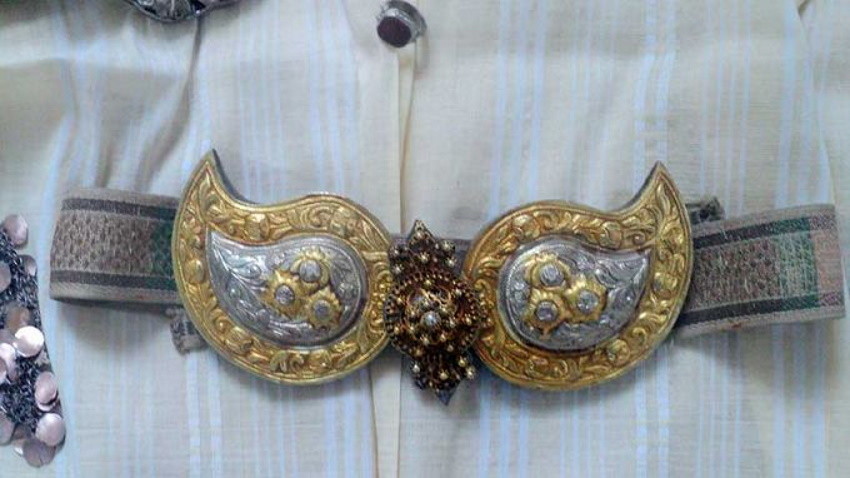Belt buckles, called pafti are a typical Bulgarian folklore ornament. You will easily recognize them as an element of folk costumes from various regions of Bulgaria. These decorative accents from traditional Bulgarian clothing can be found oval-shaped; they could be cast, or forged. Usually, they are covered mainly with floral ornaments, and sometimes they have nacre decorations. In some buckles one also finds animal motifs. Peacocks, pigeons, two-headed birds and snakes seem to come to life on them.
The history of pafti in Bulgarian lands takes us back to the Middle Ages, when they used to show the social status of men. Archaeological discoveries near the village of Madara reveal that buckles were forged in the area as early as the 9th - 10th century, and were mass-produced during the Second Bulgarian Kingdom /1185-1396 /.

After the fall of Bulgaria under Ottoman rule in the 14th century, Bulgarians lost their military power. That is why pafti gradually become part of the women's folk costume, symbolising guardians of the most important part of the body - the reproductive organs. Traditionally, they are worn only by married women after receiving them as a gift at their engagement or wedding.
In the second half of the 18th century, elements of the Baroque style appeared on the buckles. And in some of them whole biblical scenes are depicted - Christmas, Annunciation, Resurrection.
However, at the beginning of the 20th century, folk costumes began to give way to modern urban clothing and pafti gradually disappeared from the wardrobe of Bulgarians to take their place in the museum or in the dusty chests of our grandmothers.

You will learn more about this unique decorative element of the traditional Bulgarian clothing from an article from Radio Bulgaria’s collection: Bulgarian belt buckles and the secrets they hold
English: Alexander Markov
Photos: pixabay, BNR-archive, botevgrad.comOn January 6, the Orthodox Church celebrates one of the greatest Christian feasts called Epiphany, Yordanovden, or the Baptism of Lord. This is the day on which St. John the Baptist baptized Jesus Christ in the Jordan River. Epiphany is also..
Nowadays, as in the past, households are bustling with a festive hustle from the early morning of the day of Christmas eve (Badni vecher in Bulgarian) with preparations for the most important dinner of the year. The dinner in anticipation of Christmas..
The first modern Christmas was celebrated in Bulgaria in 1879. It followed a European model with a Christmas tree, ice skating and gifts. At that time, the young Alexander Battenberg, who had just become the Prince of Bulgaria, took it upon..

+359 2 9336 661
